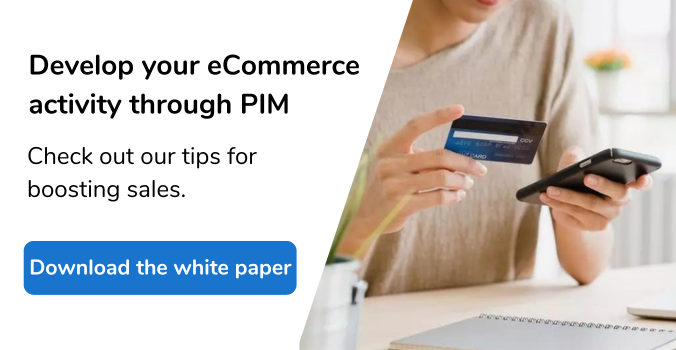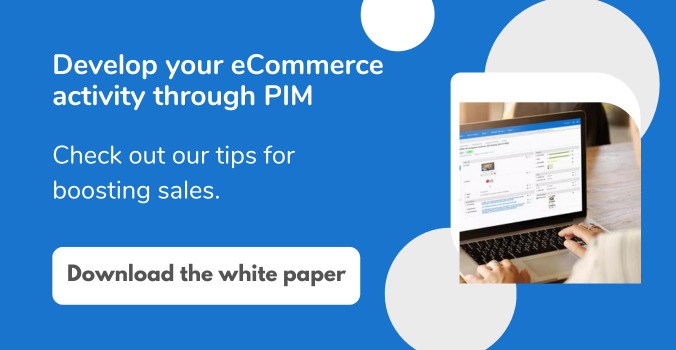Search engines have become a popular source of information among consumers. 89% of shoppers1 take search engine results pages (SERP) into consideration when deciding on a purchase. It is essential to implement a solid SEO strategy to remain competitive.
To rank well among SERPs, an eCommerce site must contain optimized pages: correct tags, high-quality product information, enhanced images… To achieve this, businesses are increasingly using PIM (Product Information Management) software. PIM allows you to optimize the SEO of your product pages before communicating on digital channels (Marketplaces, eCommerce sites, mobile apps…).
#PIM: for an effective SEO strategy
For businesses managing numerous product references, optimizing the SEO for hundreds or thousands of product pages can quickly become a nightmare. With PIM, Product and Marketing teams can rely on a centralized product reference source to optimize the SEO of each product page and on each distribution channel.
#Target the right keywords
Shoppers often use search engines to look around before making a purchase. 49% of buyers2 use the Google search engine to find or explore a product.
To gain a good ranking in SERPs, companies need to provide well structure product pages containing the right keywords. Each tag must be correct and optimized (Title, meta description, Alt tags linked to images…). This allows the shopper to access precise information, relevant to their request in the search engine.

PIM centralizes all product information and manages the integration of keywords in each SEO field of a product page. Its multi-user control features allow each employee, depending on their user rights, to contribute to finding the most appropriate keywords. Control and validation features enable them to update the keywords provided in line with the changes to Google algorithms and to check their relevance before publication on an eCommerce website.
#Avoid “duplicate content”
“Duplicate content” is a problem found on 66% of websites1. On an eCommerce site, duplicate content is counter-productive and can impact negatively on your sales. When a shopper is looking for information on a given product, finding almost identical content on different sales channels can make them feel that they are wasting their time. Consequence: they can lose interest in your product. Duplicate content also impacts a website's organic SEO. In Google, the website could lose ranking in search engine results pages, or be eliminated completely.
PIM allows you to adapt your product data to the specifics of each distribution channel: size and structure of the product title, image format, category organization, tone and approach used for marketing descriptions… The shopper has access to relevant information at each stage of their customer journey.
#Publish high-quality product pages
A high bounce rate is a bad sign and can impact the organic SEO of an eCommerce website. It indicates that the web page did not provide the shopper with the information they were looking for.

To inform the shopper and catch their attention, the product page must provide comprehensive, up to date and detailed product information: high resolution images, product demo videos, 360° packshots, up to date and accurate technical information… To create high-quality product pages, using PIM together with Digital Asset Management software allows for optimal processing of product data and digital media. A user rights and workflow management system enables each contributor to complete or enhance the information on each product page.
#Goaland, to get the best SEO for your product pages
Goaland's PIM enables you to optimize the SEO of your product pages through a centralized data base. At the core of your IS, the Goaland solution integrates a DAM and centralizes all your product information and digital media. A workflow system allows each contributor, depending on their user rights, to check the suitability and conformity of the information required for each SEO field. To avoid duplicate content, lookup tables allow you to adapt product information in line with the format constraints of each distribution channel.
Goaland helps businesses to implement a strong, comprehensive, and long-term SEO strategy.
1Henault, J. H. (2017, 26 january). 50 faits incontournables pour votre stratégie SEO en 2020.
2The Ultimate List of Marketing Statistics for 2020.







